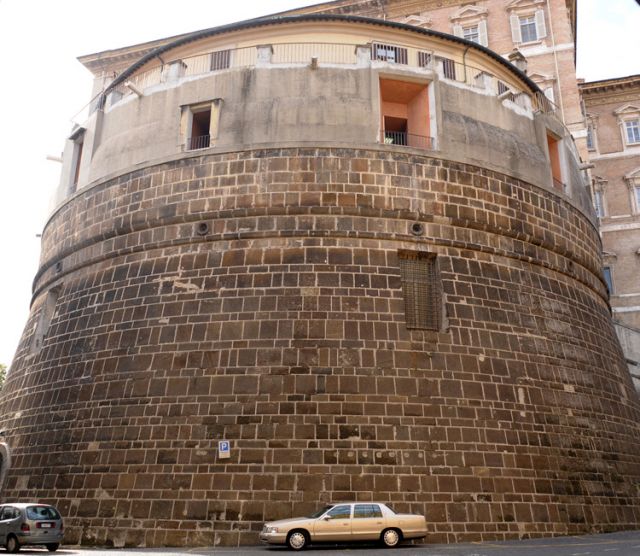Ernst von Freyberg, who in February was appointed president of the Institute for the Works of Religion -- the formal name of the bank -- met employees May 13 and announced the new initiatives.
The website will not offer online banking and the annual report will not list clients, but it will explain what the institute is and what it does, according to Greg Burke, the media adviser for the Vatican Secretariat of State.
The Institute for the Works of Religion was formally established in 1942, but it has its roots in an administrative body that was started by Pope Leo XIII in 1887 to support the work of the Catholic Church. Unlike a bank, the institute is not a lending institution and it is not a commercial enterprise intent on generating capital.
Founded to help "safeguard and administer" the financial resources of church offices, religious orders and institutes, in some ways it does work like a bank with checking and interest-bearing savings accounts and even cash machines.
The institute's director, Paolo Cipriani, told reporters last June that it handles about 6 billion euros ($7.4 billion) in assets spread out among 33,000 accounts. More than three-quarters of all account holders are in Europe, presumably Italy, while just 7.3 percent of accounts -- the next highest percentage -- are at the Vatican.
The bank has no numbered or secret accounts and no relationship with off-shore banks or countries, Cipriani had said, calling such claims "a myth" he hoped to "shoot down once and for all."
Pope Benedict XVI started implementing changes in 2010 to improve monitoring of the Vatican's financial operations, particularly those of the Vatican bank, and ensure they conform to the latest European Union regulations and other international norms against money-laundering and the financing of terrorism.
In May 2012, the bank's previous president, Ettore Gotti Tedeschi, was ousted on a no confidence vote by the laymen who form the institute's board of supervisors; the ouster came in the midst of the "VatiLeaks" scandal, which included the leaking of Vatican documents hinting at financial mismanagement within the walls of the Vatican.
For six weeks at the beginning of 2013, the Vatican was forced to stop accepting cards after Italy's central bank denied permission to Deutsche Bank Italia to continue offering the service. The central bank claimed the Vatican's banking and financial laws were not stringent enough to prevent money laundering.
But Rene Brulhart, the Swiss finance lawyer hired to monitor the legality and transparency of Vatican financial activity, said the Italian central bank's action was surprising, particularly because no other European country or agency shared Italy's concerns about the Vatican's supposed vulnerability to money laundering.
In fact, after the Vatican requested an independent review, in July 2012 "Moneyval" -- the Council of Europe's Committee of Experts on the Evaluation of Anti-Money Laundering Measures and the Financing of Terrorism -- said the Vatican met nine of its 16 "key and core" recommendations to prevent finance-related crimes. The Vatican has said it is continuing to adapt is procedures in line with Moneyval suggestions; the next evaluation report is scheduled to be released in December.


